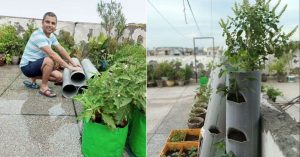Farmer Grows Avocados in Bhopal’s Heat; Has a Turnover of Rs 1 Crore
Urban farmer Harshit Godha took inspiration from Israeli farmers growing avocadoes and has successfully grown the fruit in India. He shares how you can grow them too.
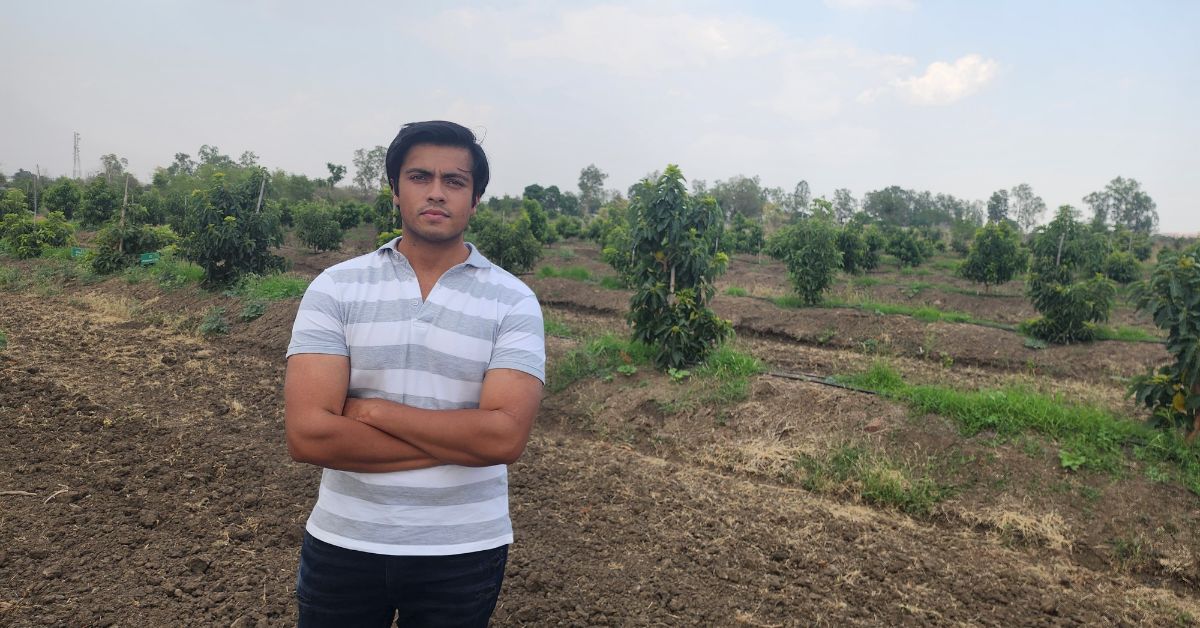
Harshit Godha, an urban farmer in Bhopal, Madhya Pradesh, has achieved something remarkable. In the region’s extreme climate, he has successfully grown avocados.
Typically, avocados are grown in northeast India, parts of Karnataka, Tamil Nadu, and Kerala, as they require temperatures between 20 to 30 degrees Celsius. According to a Krishi Jagran document, avocado is a tropical to subtropical fruit that struggles with the hot and frosty winds of North India.
“I imported 10 saplings from Israel, and now I have a 10-acre avocado plantation in Bhopal,” he tells The Better India.
But how did this urban farmer manage to successfully grow avocados in Bhopal? He provides an insight into his journey.
‘Farming was never my plan’
Born and raised in Bhopal, Harshit says that farming was not even “remotely on his plans for the future”.
From a very young age, he was interested in marketing and after his schooling, he went to the UK to study business.
“No one from my family is in farming and neither did I ever think that I would end up in the agriculture sector. In 2017, I was pursuing a BBA degree and wanted to make a career in marketing,” he says.
Harshit was very interested in health and fitness and that is what led him to pursue agriculture.
“Avocados were very easily available to us and high in nutrition. I used to love eating them and consumed them almost every day in the UK. One day, I just flipped the box and saw the packing which said it was made in Israel,” he says.
Taken aback, he started researching more on how a dry and hot country like Israel can grow avocados.
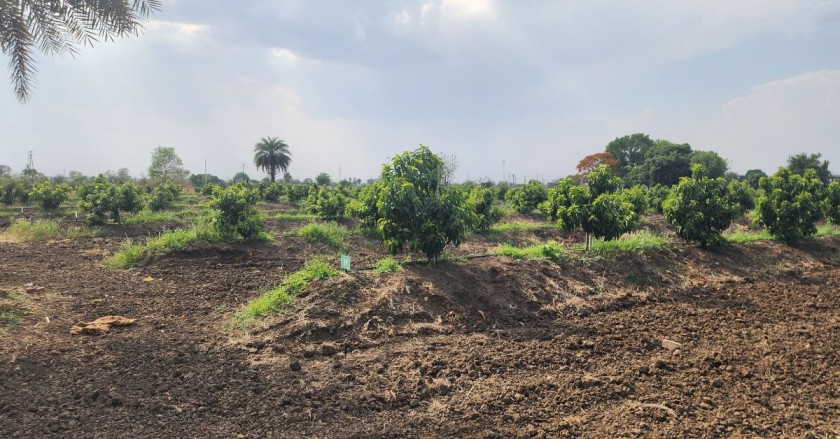
“I was aware of the kind of soil and temperature it needed to grow. It needs a temperature below 30 degrees and acidic soil with good drainage. I was very intrigued and wanted to learn more about how Israel did it with such high temperatures,” he says.
“Upon research, I found out that Israel has successfully grown various varieties under controlled conditions and has even made new hybrid varieties. The country has been exporting the fruit for decades now,” he adds.
A market enthusiast, Harhsit realised that the trend of eating the fruit would soon catch up.
“There is a huge demand for the fruit in the west which means that it will reach India soon. This gave me an idea and an opportunity to capitalise on it. I thought that if I can enter the market early on, it will lead to greater profits,” he explains.
Harshit was enthusiastic about learning farming from the farmers in Israel and decided to try it out in India. “I decided to cut short an internship I was doing at the time and go to Israel. I found a farmer who was gracious enough to help me learn the entire process. I stayed with him, and he taught me the ins and outs of avocado farming,” he says.
How to grow healthy avocadoes?
Discussing his routine in Israel, he says, “My daily routine there started with waking up at 5 am. We would work in the fields only during the morning hours until 10. Then, in the afternoon, he would introduce me to various industry experts, such as the greenhouse managers, irrigation specialists, exporters, and marketers.”
After his training period, he invited them to India. “I brought my farmer friends over in 2018. My mentor and the nursery owner conducted soil tests and assessed the climate conditions in Bhopal. They also visited other farms growing citrus and mango. After evaluating the area, they suggested that a garden could thrive in Bhopal.”
They identified specific avocado varieties that would be suitable for the city. “This made me realise that while India lacks high-quality avocados and specific varieties, Israel has excellent rootstocks,” he says.
So, he decided to import these rootstocks from Israel and began planning his first consignment, which took place in 2019.
“However, the import process turned out to be lengthy, complicated, and full of regulations that I needed to adhere to. In 2019, I struggled with the import procedure, causing my consignment to be delayed until 2020,” he says
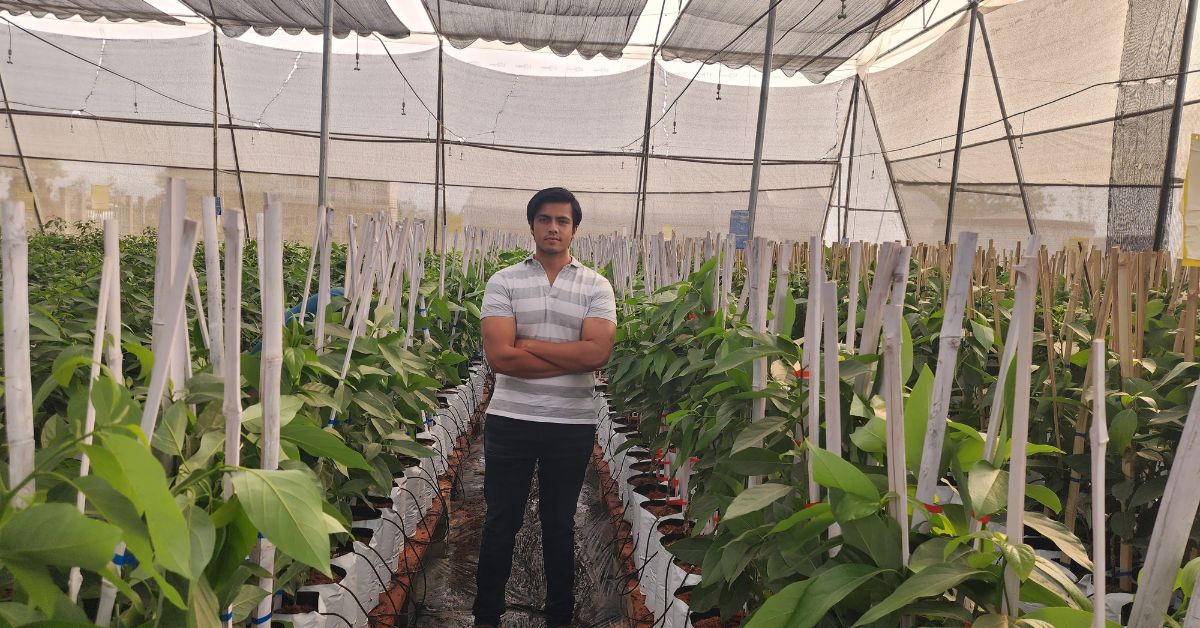
He continues, “Then, the COVID-19 pandemic struck, and both India and Israel went into lockdown. This resulted in yet another delay of one year for my consignment.”
“Finally, in 2021, I received my first shipment of avocado plants from Israel, which I planted in my own orchards,” he says.
Harshit was able to grow this batch of avocados in a polyhouse nursery the same year.
“While I have not made the fruit commercial yet, the yield was shared among my friends and family,” he says.
“Before I planted the avocado plants, they were kept in the nursery until 2023. Finally, in March 2023, I planted them in the fields. This will be the first year the crop will be commercially viable,” he says.
Harshit now sells avocado plants all over India.
Harshit says that he uses Israeli technology to irrigate his plants. “We employ advanced techniques that allow us to control water distribution precisely to the root zone of each plant. Instead of using flood irrigation, which wastes a significant amount of water, we ensure that each plant receives the exact amount of water and fertiliser it needs every day.”
Therefore, regardless of the topography of the orchard, you will have an even distribution of water for each and every plan, he stresses.
Tips for new urban farmers
When planting avocados, it’s important to keep a few things in mind.
Harshit says that you need a reliable water source or should practise rainwater harvesting, especially if you’re in hot climatic conditions.
“In regions like the Northeast, natural rainwater is usually sufficient. For other areas like Punjab, Madhya Pradesh, or Chhattisgarh, a dependable water source is crucial,” he adds.
Another key consideration is choosing the right variety of avocado plants. “I offer a 100% buy-back guarantee, ensuring that my customers won’t have any problems selling their produce. I source the plants from Israel, where extensive research has been conducted on avocados over the last 60 years.”
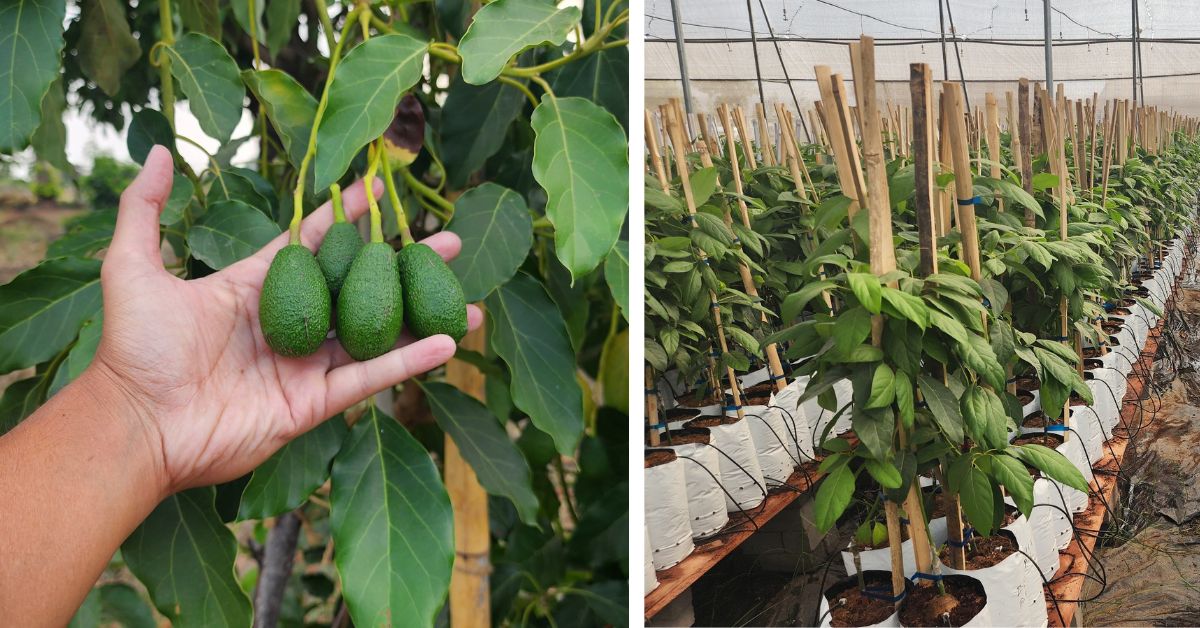
Israel has developed varieties resistant to drought and poor water quality that yield high productivity even in extreme climates.
“In contrast, the plants sold in South India for Rs 500 each may be grown from random avocado seeds and then grafted, leading to variability in quality. My plants, which cost Rs 2,500 each, are grown on commercial rootstocks of specific avocados developed in Israel,” he explains.
Avocado plants consist of two parts: the rootstock (the part below the graft) and the cultivar. The rootstock imparts certain properties to the entire plant, such as high yield and manageable canopy size. This allows for easier harvesting at heights of just 10 to 12 feet.
Choosing the right rootstock and variety, as well as seeking the appropriate support, is essential.
“Remember, different climates require different management practices and techniques. For instance, the methods used in South India differ from those used in Central India where I am based. Expecting similar results from cheaper plants without considering these factors may lead to disappointment,” he adds.
(Edited by Padmashree Pande; All Pictures Credit: Harshit Godha)
If you found our stories insightful, informative, or even just enjoyable, we invite you to consider making a voluntary payment to support the work we do at The Better India. Your contribution helps us continue producing quality content that educates, inspires, and drives positive change.
Choose one of the payment options below for your contribution-
By paying for the stories you value, you directly contribute to sustaining our efforts focused on making a difference in the world. Together, let's ensure that impactful stories continue to be told and shared, enriching lives and communities alike.
Thank you for your support. Here are some frequently asked questions you might find helpful to know why you are contributing?









